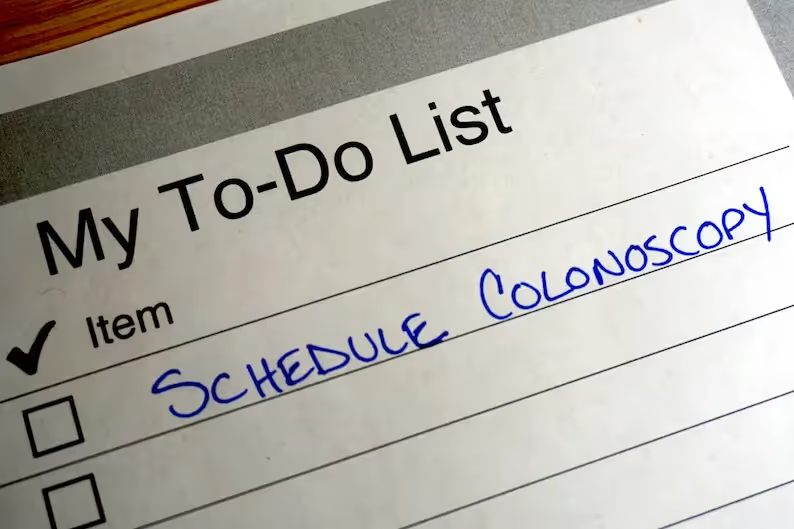If you haven't had or scheduled your first colonoscopy yet, it's long overdue. You need to make that a priority ASAP. Colorectal cancer, also called colon cancer, is the third most common cancer in men and women, according to the American Cancer Society. It's also the third leading cause of cancer-related deaths in the United States, with the vast majority of them occurring in those over the age of 50. Colon cancer death rates have slowly decreased thanks to increased screenings over the past several years. That alone should push you to schedule that colonoscopy. And along with getting your routine screening, look out for these 5 signs of colon cancer.
Change in Bowel Habits
One of the first signs of colon cancer is usually a change in your bowel habits. If you experience unusual diarrhea, constipation, or narrowing of your stool that lasts for more than a few days, you should call your doctor. Changes in bowels can be normal, but if they persist, they need to be addressed as it may be a sign of a more serious issue.
Dark Brown or Black Stool
If your stool appears darker than normal, that typically indicates that there's bleeding in the rectum or colon. Sometimes it can appear bright red and be very noticeable, and in other cases, it causes your stool to turn much darker. This is a major red flag of colon cancer. Of course, there are other causes for blood in your stool, such as hemorrhoids, but if you notice your stool being darker or visible red blood, notify your doctor immediately.
Abdominal Pain
We all experience stomach bloating and embarrassing gas from time to time. However, if you experience chronic abdominal discomfort in the form of bloating, cramps, gas, and severe belly pain, it could indicate colon cancer. This symptom usually appears in later stages of the cancer, so it's not a red flag to overlook.
Unexplained Weight Loss
Who doesn't want to lose weight, right? We'd all be excited if we just magically started losing weight. Unfortunately, it doesn't exactly work like that, and losing weight for no apparent reason is usually a red flag that something isn't right. Colon cancer and other cancers can cause unexplained weight loss and should be a motivator to schedule an appointment with your doctor.
Fatigue and Weakness
Don't mistake fatigue for tiredness. If you're tired, a good night's rest can help to fix that, but fatigue is another whole issue. Yes, if you're fatigued, you may feel tired, but it is a weak and worn-out tired. Cancer-related fatigue zaps you of your energy and leaves you feeling heavy and slow. Just getting up and doing the smallest chore feels like an obstacle. If you're feeling fatigued and weak, it's a good idea to speak to your healthcare professional to determine the cause and whether it could be related to colon cancer or another serious condition. Being fatigued is not normal.
Colon Cancer Risk Factors to Avoid
Keeping an eye out for those 5 signs of colon cancer is the best way to catch and treat it successfully. When caught early, the 5-year survival rate is about 90 percent. Along with keeping an eye out for these colon cancer symptoms, eliminating potential risk factors is vital. Of course, there are risk factors you can't control, such as your age and family history, but there are several you do have control over, including:
- Being overweight
- Smoking
- Drinking heavily
- Diabetes
- Living a sedentary lifestyle
- Consuming a diet high in processed meats
Your risk of getting colon cancer increases as you get older, so it's important that you follow a healthy lifestyle and eliminate any possible risk factors that are within your control.
Schedule Your Colon Screening Today!
If you experience any of the colon cancer symptoms discussed above, schedule an appointment with your provider right away. Regular colon screenings are important in catching colon cancer early and when it is most treatable. Many of these symptoms can often be overlooked and passed off for something else or nothing at all, but you should never ignore them. Symptoms usually start to appear when the disease begins to become more advanced, so you definitely don't want to wait to schedule an appointment with your doctor Discuss with your provider how frequently you should receive screenings. He will base his recommendation on your risk factors and family history of colon cancer as well as other cancers. Take preventative measures to keep your body healthy and cancer-free.




